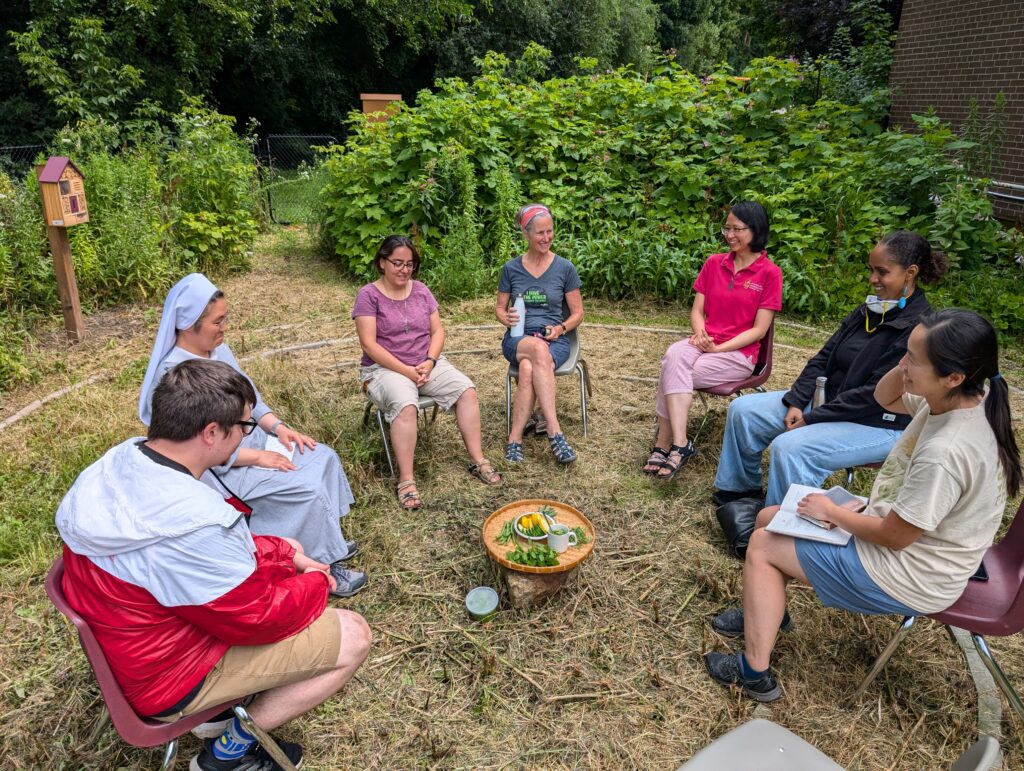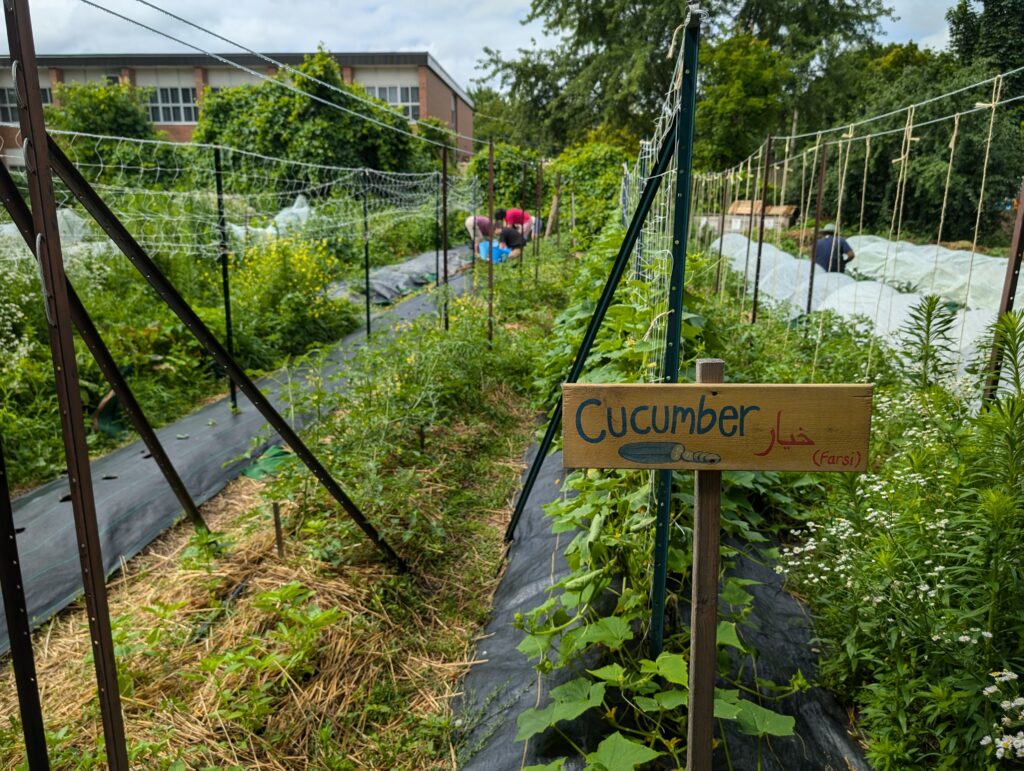Through weeding and harvesting, students in Regis St. Michael’s Faculty of Theology’s Food/Justice, Farming and Eco-Theology in the City engaged with the social justice issues surrounding the food industry.
This course, taught by Dr. Hilda Koster, director of The Elliott Allen Institute for Theology and Ecology (EAITE), is a part of the summer’s experiential learning program that takes students out of the classroom and into immersive learning experiences. On Thursday, July 11, students visited The Common Table, an urban farm run by Toronto’s Flemingdon Park Ministries that grows food to distribute to the local community.
The visit was organized by the farm’s manager Melodie Ng, who is also enrolled in the course. To begin the day, she shared the Parable of the Growing Seed, Mark 4:26-29 with her classmates:
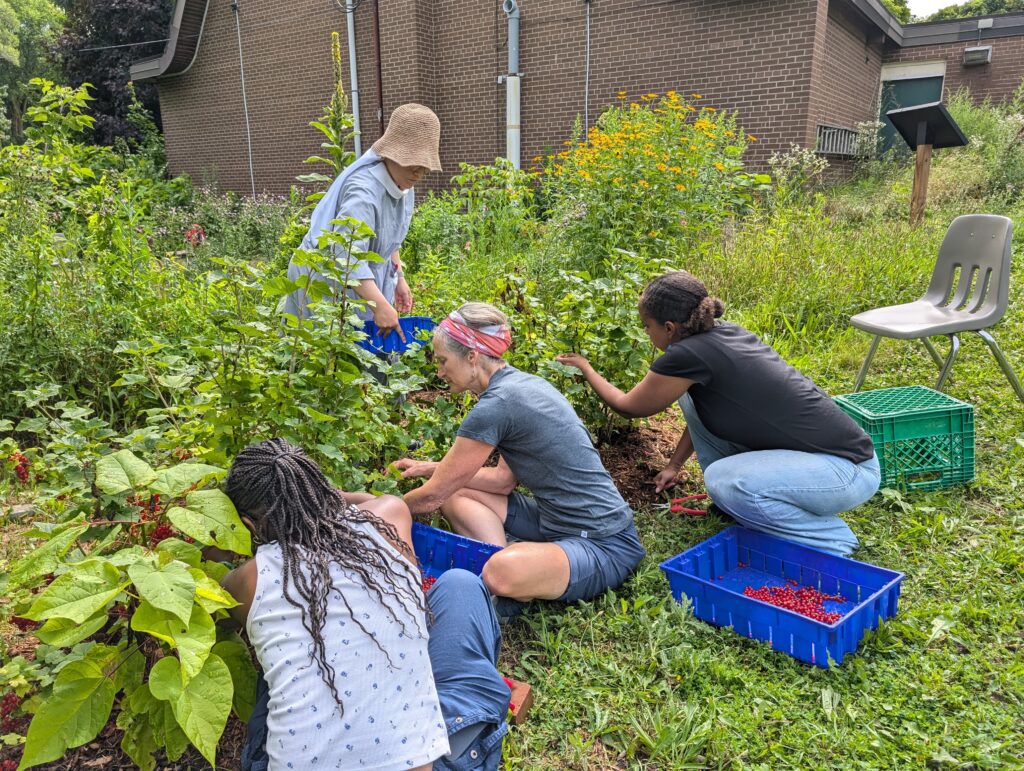
26 He also said, ‘The kingdom of God is as if someone would scatter seed on the ground, 27 and would sleep and rise night and day, and the seed would sprout and grow, he does not know how. 28 The earth produces of itself, first the stalk, then the head, then the full grain in the head. 29 But when the grain is ripe, at once he goes in with his sickle, because the harvest has come.
“This has been a personally significant passage for me since I started farming in 2019. I shared it with the group as something to reflect on for their morning. There is a lot of mystery and trust in the life of farming, and God’s presence in all these processes we don’t fully understand, but are miraculous and sustain us,” she said.
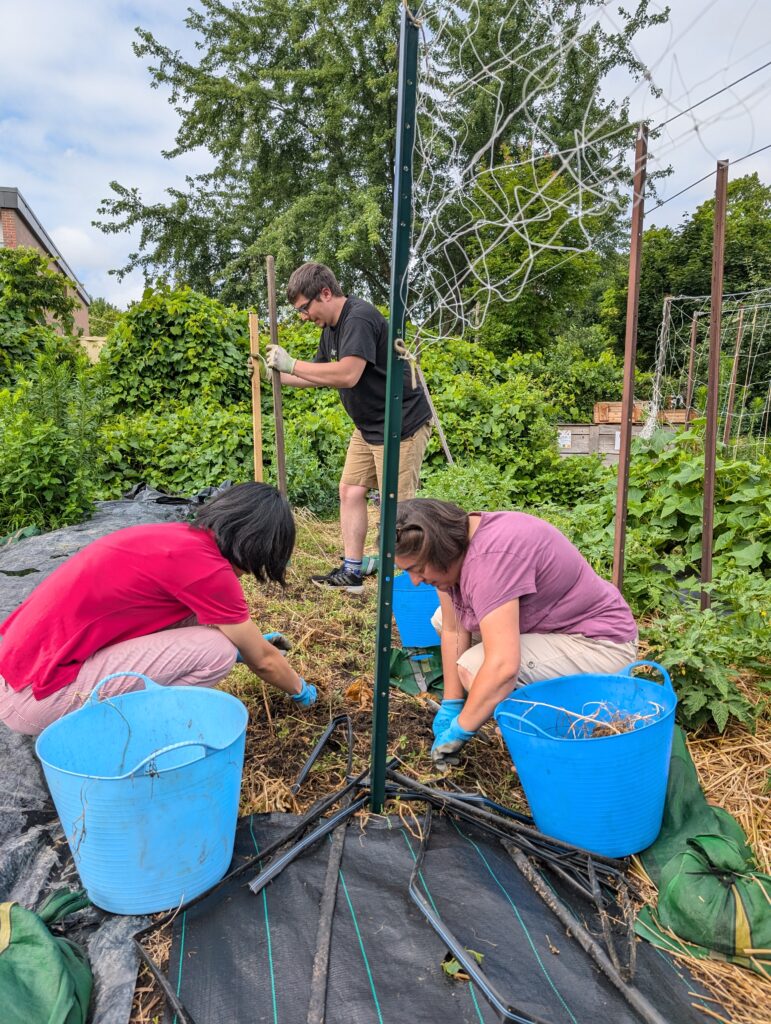
As the group toured the farm, Melodie pointed out the sustainable practices that are used including rain barrels, composting and a pollinator garden.
Students enjoyed seeing the variety of crops in their growing stages.
“I think what has been interesting in this class is learning where our food comes from. For me, food comes from the supermarket, so it’s interesting to learn about how we are connected to plants, animals and ecosystems and to think more about how eating is an act that relates us to all of creation,” said Audrey Wong, who’s starting her third year of her Master of Divinity at Regis St. Michael’s.
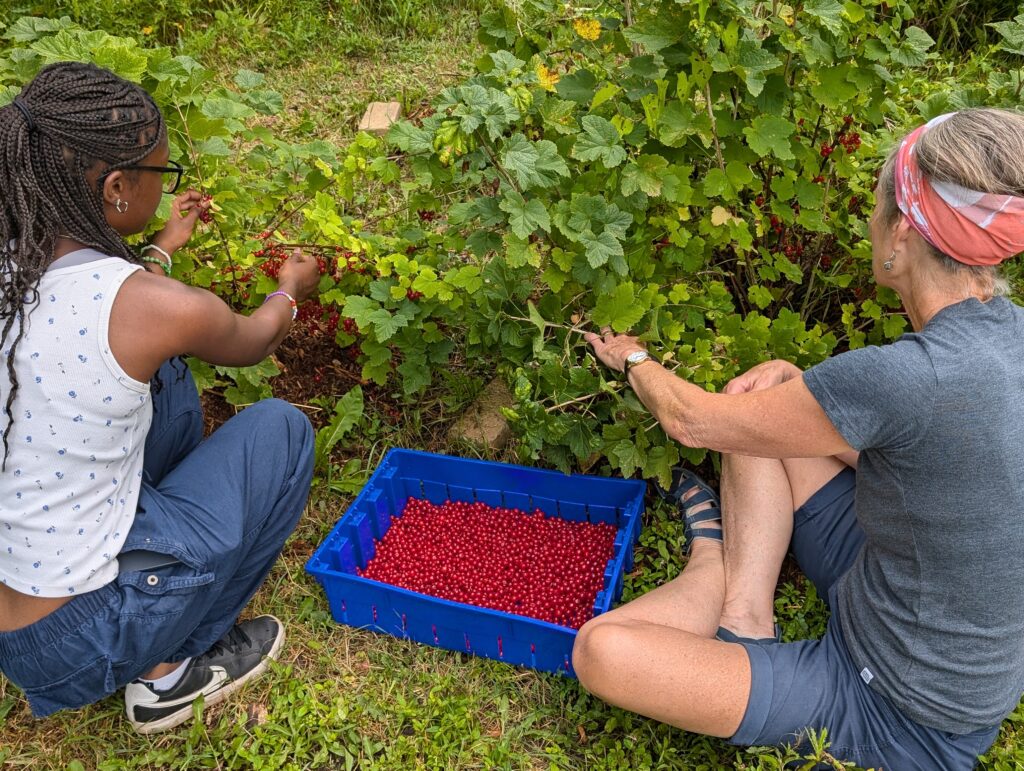
“This is my first time taking a course about food justice. This visit is important because it allows me to see the issues we’re learning about in real life. It’s hard to read about all these different and new ideas, but by visiting the farm, I get an understanding of what we’re talking about in class, and I can see the importance the farm has in its community,” said student James Sullivan.
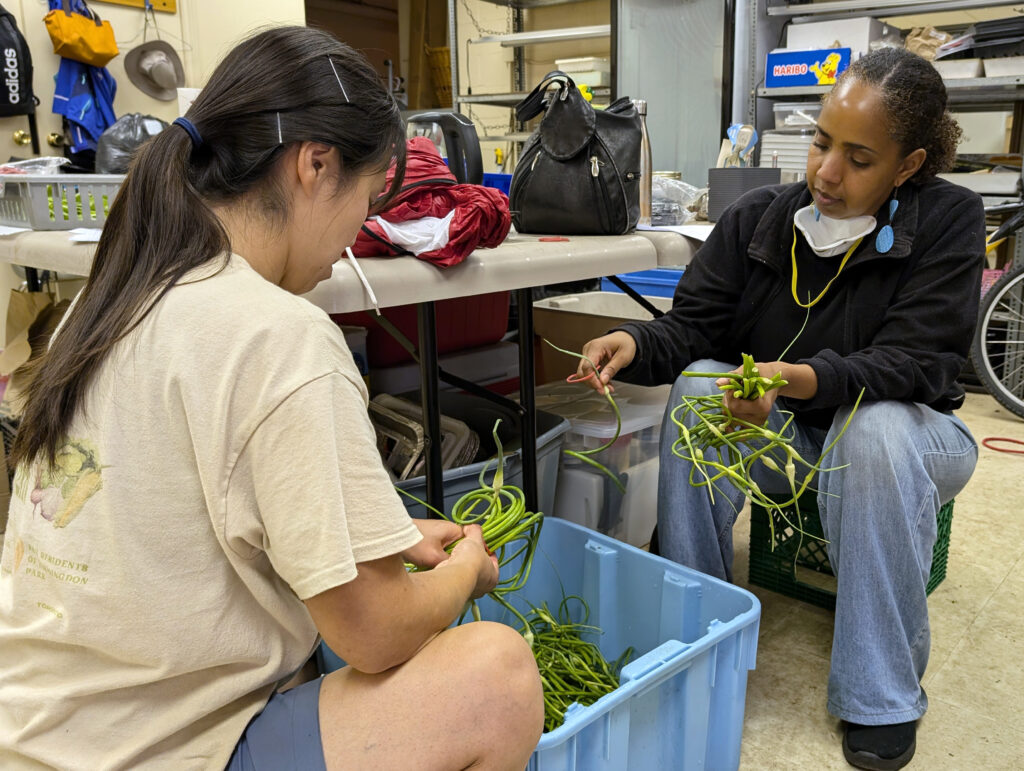
The students were put to work harvesting currants and weeding garden beds. “I think there’s a chance to encourage my classmates to process what we’re learning in different ways, from sweating from the heat to listening to the birds. It gets us out of the rational side of our brain and into our senses and paying attention to what we’re feeling and experiencing,” said Melodie.
“I don’t know how you do this work without touching the trees or having your hands in the dirt. I’m very practical and I like seeing examples put into practice. I have a home garden and volunteer at an urban farm. It helps to see what other people are doing in their communities and I find I’m getting a lot of ideas for things I could do,” said Niki Andre, who is auditing the course.
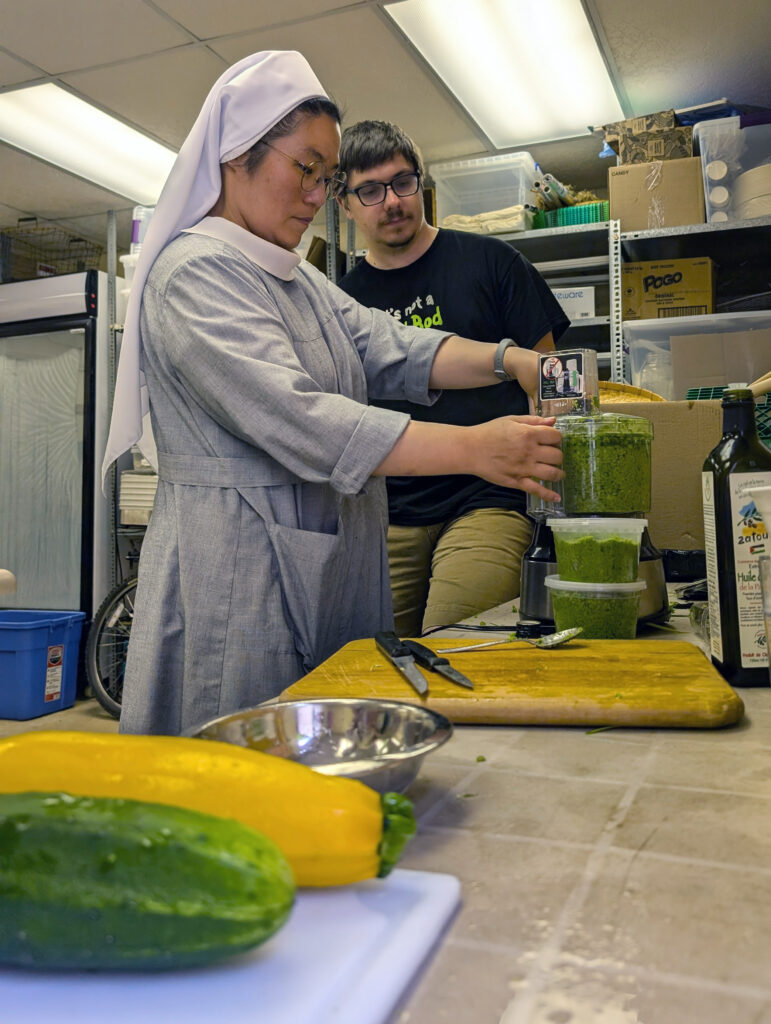
After a recent rainfall there was much work to do.
To minimize disturbance to the soil, The Common Table relies on a lot of labour to be done by hand.
“There’s life in the soil; all the different kinds of creatures can be found there. When we reduce the amount of disruption, we’re preserving the networks they’ve been making,” said Melodie.
Using ingredients harvested from the farm, the students made garlic scape pesto.
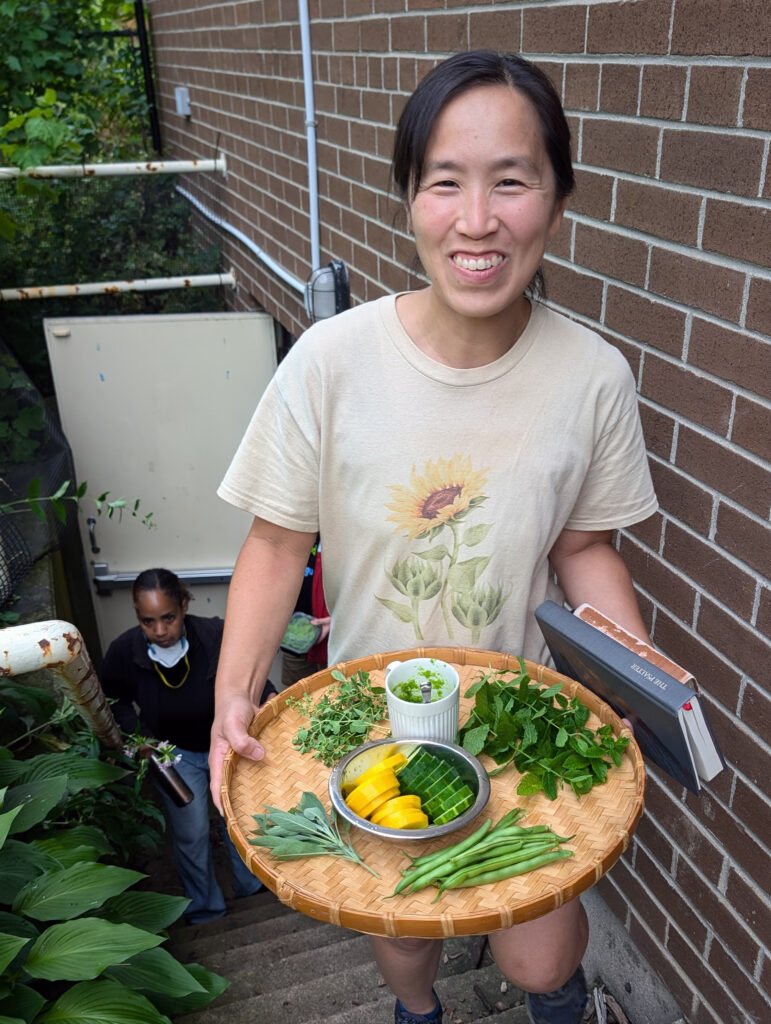
“The experiential component allows me to talk authentically with people who are doing something in their community, whether it’s starting a farm or dealing with food insecurity or food deserts. I think people of faith have a huge responsibility because our work is formed by God and we are well equipped to be authentic in this work,” said Martha Asselin, who is working toward a certificate from The Elliott Allen Institute for Theology and Ecology.
The visit closed with a reading of Psalm 34:1-8 and inviting students to “taste and see that the Lord is good” by sharing produce from the farm to break bread together.
